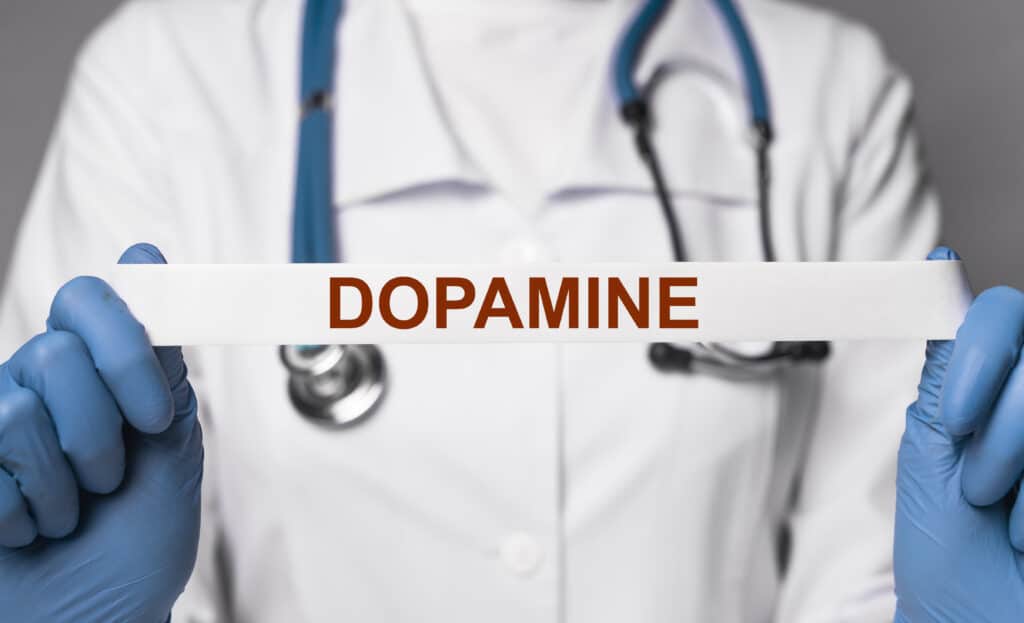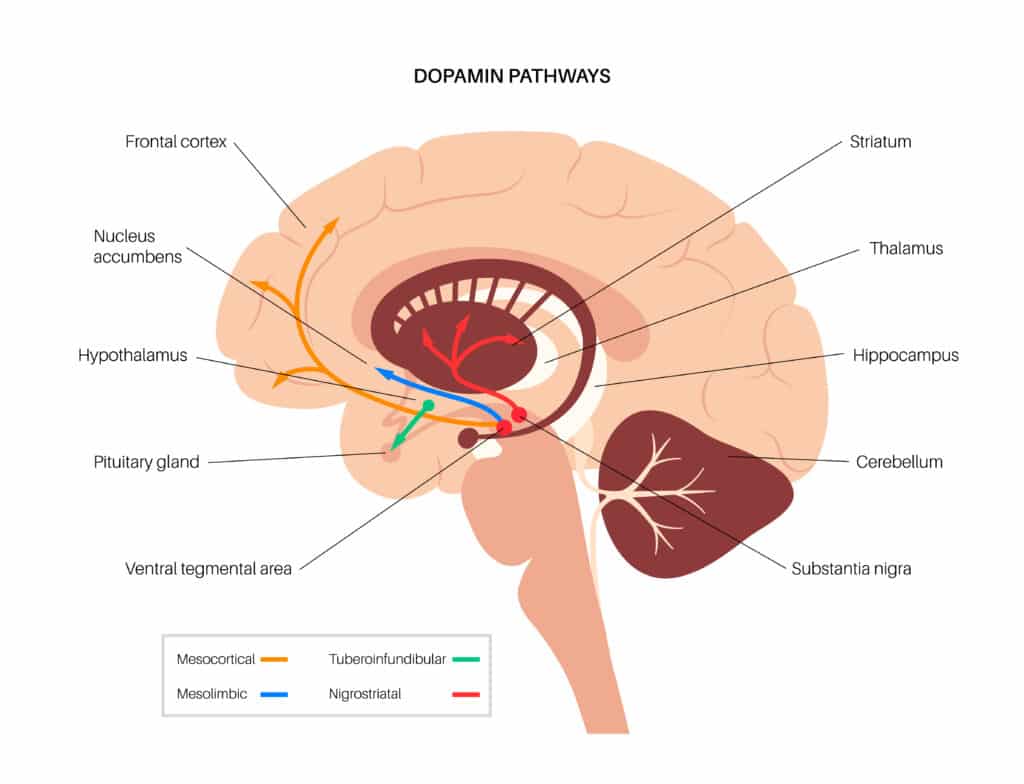
We all know the appeal of certain activities, foods and drinks. Alcohol, drugs and sweets, as well as social media use, can be addictive. When you watch a movie, take a piece of chocolate or sip wine, you get a wonderful feeling of satisfaction. These activities excite your brain to produce dopamine. To get rid of this, you can practice dopamine fasting. You can read exactly what dopamine fasting is in the blog below.
Dopamine fasting originated in Sillicon Valley. All the people there who are constantly engaged and surrounded by technology know the excessive stimulation caused by smartphones, social media and the Internet. Whether dopamine fasting actually makes sense depends on your view of exactly what dopamine does. First, it’s all about fasting.
Your brain is constantly stimulated in our contemporary society by emails, apps and notifications, as well as food, sex, sports and video games. Proponents of dopamine fasting, are convinced that at some point you need a time-out. This is because as soon as you do something that is pleasurable, i.e. give a like or eat a piece of chocolate, your brain produces dopamine to confirm this behavior. You get a little dopamine rush and feel momentarily satisfied and happy at that moment.
But the more often this happens (which of course easily happens when using social media), the more dopamine is needed to give you those feelings of satisfaction. So this can create a vicious cycle of addiction. Many people feel they become dependent on the many stimuli around them. You could break this cycle with dopamine fasting. A type of fasting that has nothing to do with eating, but with reducing stimuli that provide the dopamine rush.
So some people put aside their smartphones for a few days, limit their intake of certain types of food and don’t play video games. Others do it even more rigorously and avoid sex, all food and even contact with other people. Because anything that gives pleasure could still provide dopamine release.
This temporary break from fun things in life, can reset the brain’s reward system. People who apply this report that they feel calmer, more focused and that they enjoy more the things they stopped doing during the break.

By temporarily taking a break from the amount of stimuli, you allow your entire system to rest. Whether you believe in the underlying theory of dopamine addiction or not, it’s not hard to see that it allows you to come back to yourself for a while, to take a break from the pull of technology, food and other addictive activities. It can even reveal a possible addiction or help you get rid of one.
Fasting could lower the levels of dopamine in your brain. How long would you have to fasten? There are no rules for that. It’s something you should try and see how it feels to stop for two, five or seven days. Or maybe a whole month. Choose one or more stimuli that you temporarily banish from your life, such as candy, fried food, whatsapp, Facebook, Twitter or video games. Instead, find peace within yourself, walk in nature and experience silence.
Although no studies have been done on the effects of dopamine fasting, many people have reported what they have experienced.
Possible benefits of dopamine fasting include:

While this all sounds very nice and, for the most part, logical, there are also scientists who indicate that the underlying theory of dopamine fasting is flawed. It is oversimplified. So dopamine is part of the reward system, but this is more complicated than many people know. Consequently, there are scientists who indicate that dopamine fasting is not effective. One of the things that goes wrong, according to Michael Treadway, clinical psychologist and neuroscientist at Emory University in Atlanta in the US, is what dopamine is for.
Dopamine is not about pleasure, but about motivation, he says. It helps you feel motivated to put in the effort and be rewarded for it. But it is equally important to realize that dopamine has many other functions in the brain. Dopamine is a neurotransmitter that plays a role in a variety of processes.
The effect of dopamine depends on which nerve cells send and receive the substance and where these cells are located in the brain. In general, dopamine acts as a kind of switchboard, controlling how different areas of the brain process information. Among other things, the neurotransmitter helps you concentrate and determines how your energy levels are distributed.
So dopamine is very important and plays a role not only in the system of reward. Therefore, you cannot completely fast or drastically lower dopamine levels. And that’s just as well, says Treadway, because it could have serious consequences for your health.
Cameron Sepah, clinical professor of psychiatry at the University of California, also takes a different view. Dopamine fasting should not be about reducing dopamine levels. It does make sense, but in a different way than people think. In fact, it can help reduce the time you spend on problematic behaviors. It makes you aware of how dependent you are on something and hopefully helps you get rid of it.
If it is actually about addiction, a dopamine fast is also not enough to stop addictive behavior. More steps are needed for this, Sepah says. You may find during the fast that you can do without social media, licorice or youtube videos. But you don’t gain much if, after dopamine fasting, you just go back to your old behavior. It is necessary to dive deep into the cause of this addiction.
You can do this by seeking help, from a behaviorist or psychologist. Microdosing may also be able to help with addiction. When you microdose, you take a very low dose of a psychedelic drug (such as truffles). The substance psilocybin can help you gain more insight into yourself and your life, enabling behavior change. If you want to try this yourself, look around our shop at Microdosing Truffles or read here more about what the benefits of microdosing are.


